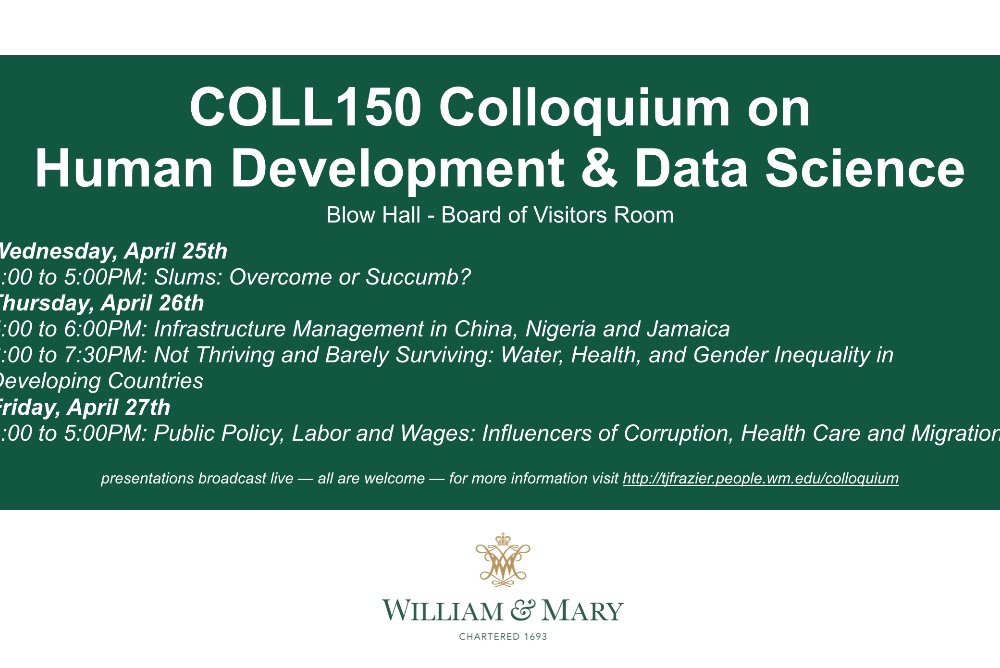W&M Featured Events
[PAST EVENT] Colloquium - Not Thriving and Barely Surviving: Water, Health, and Gender Inequality in Dev Cntries
Location
Blow Memorial Hall, Board of Visitors Room262 Richmond Rd
Williamsburg, VA 23185Map this location
Access & Features
- Open to the public

Not Thriving and Barely Surviving: Water, Health, and Gender Inequality in Developing Countries
Caroline Duckworth, Alyssa Costello, Maddison Wester, Julia Tripodi and Lauren Mayer
This presentation seeks to discuss components of development that negatively affect quality of life using various statistical models and analyses and will specifically examine issues related to water quality and accessibility, sexual and reproductive health, and gender inequality. To begin, our presentation will discuss the broad nature of gender inequality in education, an issue which affects many of the topics that will be covered in the subsequent sections of the presentation. With a focus on West Africa, our lecture will use various statistical methods to help us identify at which stage of schooling girls are the most vulnerable to dropping out of school and the various pressures that cause them to do so. Gender inequality also plays a major role in issues related to maternal healthcare in East Africa such as availability of water and electricity, transportation, income levels, and other components of infrastructure that play a part in preventing mothers from receiving the quality healthcare they need to have successful pregnancies. These inadequacies result in hundreds of maternal deaths each day. We attempt to quantify and visually represent the factors that prevent women from receiving medical care as well as identify methods to address these issues and increase access to maternal healthcare in developing countries. Maternal healthcare is one of the leading causes in the distribution of HIV/AIDS in Sub-Saharan Africa, the next focus of our presentation. By looking at the harms of this, we will analyze the treatments and programs initiated to provide aid since the diseases emergence in the 1980s. Then we will examine the influences of informal and formal economics on HIV/AIDS as well as how the disease has affected those living in rural and urban areas. Relating to disease issues and gender inequality in domestic roles concerning water transportation, we will then analyze the causes and effects of potable water inaccessibility in East Africa including the spread of waterborne diseases. Finally, we will build upon the theme of water and conclude by addressing how the excessive consumption of drugs by Colombians has led to the discovery of drug metabolites in the wastewater and surface water of Medell?n and Bogot?. We will also discuss how drug-related violence has led to Colombians developing mental health issues. Overall, this colloquium seeks to provide an in depth understanding related to some of the most common development problems around the world.
Contact
Tyler Frazier
